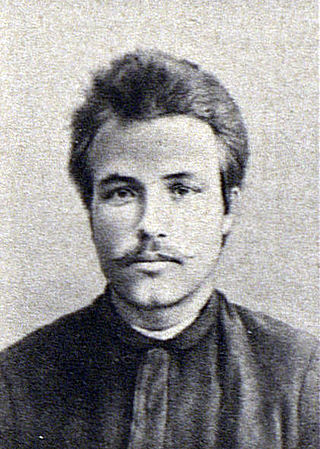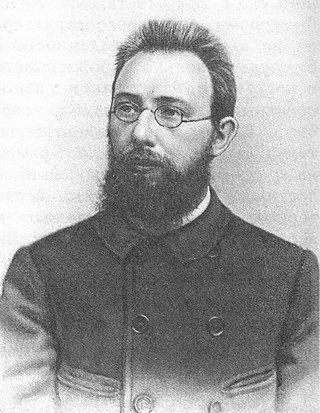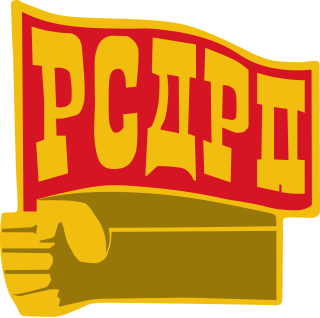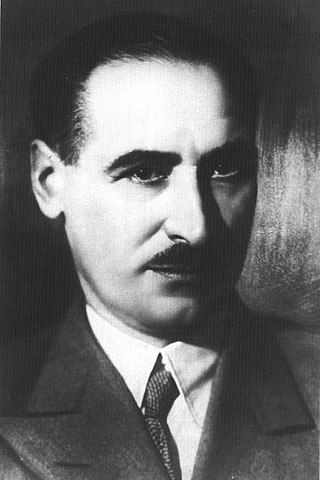
The Bolsheviks, led by Vladimir Lenin, were a far-left faction of the Marxist Russian Social Democratic Labour Party (RSDLP) which split with the Mensheviks at the Second Party Congress in 1903. The Bolshevik party seized power in Russia in the October Revolution of 1917, and was later renamed the Communist Party of the Soviet Union. Their ideology and practices, based on Leninist and later Marxist–Leninist principles, are known as Bolshevism.

The Russian Revolution was a period of political and social change in the Russian Empire, starting in 1917. This period saw Russia abolish its monarchy and adopt a socialist form of government following two successive revolutions and a bloody civil war. The Russian Revolution can also be seen as the precursor for the other European revolutions that occurred during or in the aftermath of World War I, such as the German Revolution of 1918–1919.
Bolshevism is a revolutionary socialist current of Soviet Leninist and later Marxist–Leninist political thought and political regime associated with the formation of a rigidly centralized, cohesive and disciplined party of social revolution, focused on overthrowing the existing capitalist state system, seizing power and establishing the "dictatorship of the proletariat".

Fanny Efimovna Kaplan was a Russian Socialist-Revolutionary who attempted to assassinate Vladimir Lenin. She was arrested and executed by the Cheka in 1918.

Yakov Mikhailovich Sverdlov was a Bolshevik Party administrator and chairman of the All-Russian Central Executive Committee from 1917 to 1919. He is sometimes regarded as the first head of state of the Soviet Union, although it was not established until 1922, three years after his death.

Yuri Lvovich Slezkine is a Russian-born American historian and translator. He was a professor of Russian history, Sovietologist, and served as Director of the Institute of Slavic, East European, and Eurasian Studies at the University of California, Berkeley in 2004-2013. He is best known as the author of the books The Jewish Century (2004) and The House of Government: A Saga of The Russian Revolution (2017).

Vladimir Mikhailovich Smirnov was a Russian Communist revolutionary, member of the Bolshevik Party and Soviet politician, where he advocated a militant and doctrinally pure line. He was a persistent critic of successive party leaders, including Vladimir Lenin and Joseph Stalin, for which he spent years in prison and exile before being executed.

Nikolai Ilyich Podvoisky was a Russian Bolshevik revolutionary, Soviet statesman and the first People's Commissar of Military and Naval Affairs of the Russian SFSR.

Vladimir Dmitriyevich Bonch-Bruyevich was a Soviet politician, revolutionary, historian, writer and Old Bolshevik. He was Vladimir Lenin's personal secretary.

The House on the Embankment is a block-wide apartment building on the banks of the Moskva River on Balchug in downtown Moscow, Russia. It faces Bersenevskaya Embankment on one side and Serafimovicha Street on the other side. Until 1952, it was the tallest residential building in Moscow. It is considered an example of constructivist architecture. It is most known as the place of residence of the Soviet elite, many of whom were arrested and executed during Stalin's Great Purge.
Aaron Aleksandrovich Soltz was an Old Bolshevik and a Soviet politician and lawyer. He was informally known as the "conscience of the Party". While partially responsible for the Soviet repressions he was one of very few high-ranking Joseph Stalin loyalists who openly objected to the Great Purge; he died in a psychiatric clinic after years of involuntary commitment.

Elena Dmitriyevna Stasova was a Russian Soviet revolutionary, Old Bolshevik and an early leader of the organisation that would go on to become the Communist Party of the Soviet Union.

Yuri Mikhailovich Larin was a Soviet economist and politician.

The Mensheviks were a faction of the Marxist Russian Social Democratic Labour Party (RSDLP) which split with Vladimir Lenin's Bolshevik faction at the Second Party Congress in 1903. The Mensheviks were led by Julius Martov and Pavel Axelrod.

The Russian Social Democratic Labour Party, also known as the Russian Social Democratic Workers' Party or the Russian Social Democratic Party, was a socialist political party founded in 1898 in Minsk.

Robert Indrikovich Eikhe was a Latvian Bolshevik and Soviet politician who was the provincial head of the Communist Party of the Soviet Union in Siberia during the collectivization of agriculture, until his arrest during the Great Purge.
This is a select bibliography of post World War II English language books and journal articles about the Revolutionary and Civil War era of Russian (Soviet) history. The sections "General Surveys" and "Biographies" contain books; other sections contain both books and journal articles. Book entries may have references to reviews published in English language academic journals or major newspapers when these could be considered helpful. Additional bibliographies can be found in many of the book-length works listed below; see Further Reading for several book and chapter length bibliographies. The External Links section contains entries for publicly available select bibliographies from universities.
Yelena Feliksovna Usievich was a Soviet and Russian literary critic and editor of Literaturnyi kritik.

Below is a list of post World War II scholarly books and journal articles written in or translated into English about communism. Items on this list should be considered a non-exhaustive list of reliable sources related to the theory and practice of communism in its different forms.
Andrei Yakovlevich Sverdlov was a Soviet police officer, notorious for his treatment of political prisoners, who was a victim of the anti-semitic purge during the last years of Joseph Stalin.















